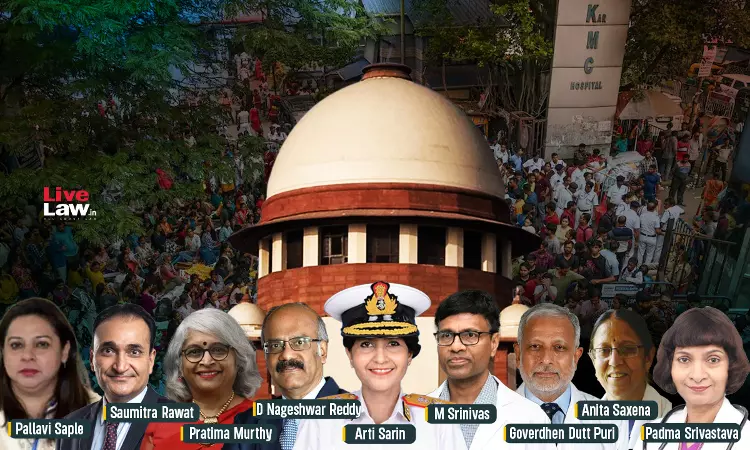Medical Professionals' Safety: Meet The Members Of National Task Force Formed By Supreme Court
LIVELAW NEWS NETWORK
20 Aug 2024 2:53 PM IST

Next Story
20 Aug 2024 2:53 PM IST
To address the systemic issues regarding the lack of safety for medical professionals, the Supreme Court on Tuesday (August 20) ordered the formation of a National Task Force to give recommendations on the modalities to be followed all over the country.A bench comprising Chief Justice of India DY Chandrachud, Justice JB Pardiwala and Manoj Misra passed the order in the suo motu case taken...
